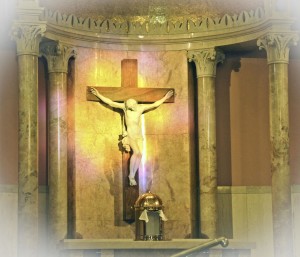Parish School of Religion

Holy Spirit PSR Watchful Wednesday Meditation, November 5th, 2025
Here it is November the month of Saints/saints, Deceased Souls and how about those Unsung Heroes . Reading a short meditation about one unsung hero peaked my interest and I hope yours. You’ve seen them or read about them, too. Those that are quietly doing God’s work to make another’s life easier or more comforting. Putting themselves aside for another or for the upkeep of creation. They just do.
We can capture some unsung heroes in the pages of the Bible.There were the 72 that Jesus sent out to villages and towns He would be visiting. No names we just know they obeyed and started travelling to prepare the people for the greatest visitor they would ever encounter. There was a man carrying a water jug (quite a sight as women usually hauled the water) ,but he was the one Jesus told the Apostles to see about the Passover room. He followed through because Jesus had His Last Supper in that room. Praying and praising God was a woman who showed up for 18 yrs. in a synagogue . What was so special about that ? She was bent over and could not stand upright, but she did not forget her God.
How about some in the pages of life today;a Priest so bent over he could hardly walk, but he offered Mass with a voice so strong that you knew he did it for the love of Jesus and his want to give Him to others.Elders entering a nursing home to live out the rest of their life, a fate they were dreading. Instead of being bitter they turned it around to make those surrounding them look forward to the smiles and kind disposition of those elders. The High School athlete who is faithful working at a hunger center serving meals and makes that a top priority . The crossing guards who leave the comfort of their home to stand on a corner bearing the elements to cross children safely and let them know they matter .The neighbor who takes a walk with a bag to pick up litter so your streets look good.
How do all the heroes keep going ? They take a daily dose of hope with the side effects of bravery and determination.
Take a look around and find some of your own unsung heroes or better yet become one yourself.
P.S. moment
“If on any particular day we do nothing more than give a little joy to a neighbor ,that day will not be wasted. For we have succeeded in giving comfort to an immortal soul.”
Blessed Contardo Ferrini
P.S.S.
Great youtube video “Heaven On My Mind” by TobyMac -if you don’t know Toby you can ask me about the end of the video. Also for you Forrest Frank fans he does sing along with Toby on the song on another version.